When it comes to transporting highly corrosive chemicals like sodium hypochlorite (NaOCl), selecting the right pump is crucial to ensure safety, efficiency, and longevity of the equipment. Fluorine-lined centrifugal pumps are often considered due to their excellent chemical resistance properties. This article explores whether a fluorine-lined centrifugal pump is suitable for transporting sodium hypochlorite, highlighting its advantages, considerations, and best practices.
Understanding Sodium Hypochlorite
Sodium hypochlorite, commonly known as bleach, is widely used in water treatment, disinfection, and bleaching processes. However, it is highly corrosive and can degrade many materials commonly used in pump construction. This makes the selection of appropriate pump materials critical to avoid frequent maintenance and potential failures.
Why Choose a Fluorine-Lined Centrifugal Pump?
1.Superior Chemical Resistance
Fluorine-lined centrifugal pumps, often lined with PTFE (polytetrafluoroethylene) or other fluoropolymers, offer superior resistance to a wide range of corrosive chemicals, including sodium hypochlorite. The fluorine lining acts as a barrier, protecting the pump's internal components from chemical attack.
2.Durability and Longevity
The high chemical resistance of fluoropolymers ensures that the pump can operate efficiently over extended periods, even when handling aggressive chemicals like sodium hypochlorite. This durability translates to lower maintenance costs and reduced downtime.
3.Non-Reactive and Safe
Fluorine-lined materials are non-reactive with most chemicals, including sodium hypochlorite. This minimizes the risk of dangerous reactions that could compromise safety and lead to equipment failure.
Considerations for Using Fluorine-Lined Centrifugal Pumps with Sodium Hypochlorite
1.Concentration and Temperature
The concentration of sodium hypochlorite and the operating temperature can significantly impact the pump's performance. Higher concentrations and temperatures increase the chemical's aggressiveness. It is essential to verify that the selected fluorine lining can withstand the specific concentration and temperature conditions of your application.
2.Compatibility of Other Pump Components
While the fluorine lining provides excellent protection, other pump components such as seals, gaskets, and bearings must also be compatible with sodium hypochlorite. Using materials like Viton or EPDM for seals can offer additional chemical resistance.
3.Maintenance and Monitoring
Regular maintenance and monitoring are crucial to ensure the continued performance of the pump. Inspect the fluorine lining and other critical components periodically to detect any signs of wear or degradation early.
Best Practices for Handling Sodium Hypochlorite with Fluorine-Lined Centrifugal Pumps
1.Proper Installation
Ensure that the pump is installed correctly, following the manufacturer's guidelines. Proper alignment and secure mounting can prevent issues related to vibration and misalignment, which could damage the lining.
2.Regular Maintenance Schedule
Implement a regular maintenance schedule to inspect and replace any worn or damaged parts promptly. This includes checking the integrity of the fluorine lining and ensuring that seals and gaskets are in good condition.
3.Safety Precautions
Handle sodium hypochlorite with care, using appropriate personal protective equipment (PPE) and following safety protocols to protect personnel and equipment from accidental exposure and spills.
Fluorine-lined centrifugal pumps are highly suitable for transporting sodium hypochlorite due to their exceptional chemical resistance, durability, and safety. However, it is essential to consider factors such as concentration, temperature, and the compatibility of all pump components to ensure optimal performance and longevity. By following best practices in installation, maintenance, and safety, you can effectively utilize fluorine-lined centrifugal pumps for sodium hypochlorite applications, ensuring efficient and safe operations.





 +86 18130251359
+86 18130251359 teflowpumps@tlpumps.com
teflowpumps@tlpumps.com

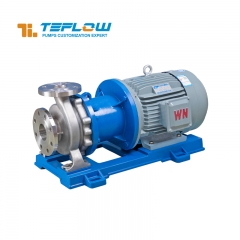
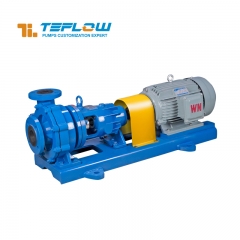
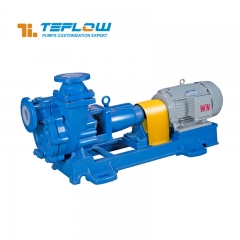
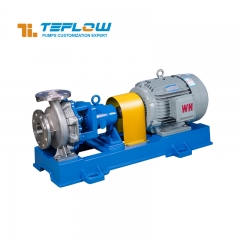

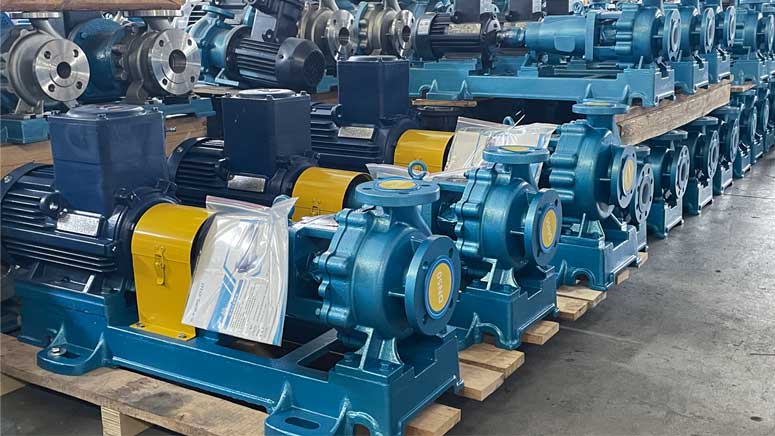







 +86+0563-5093318
+86+0563-5093318
